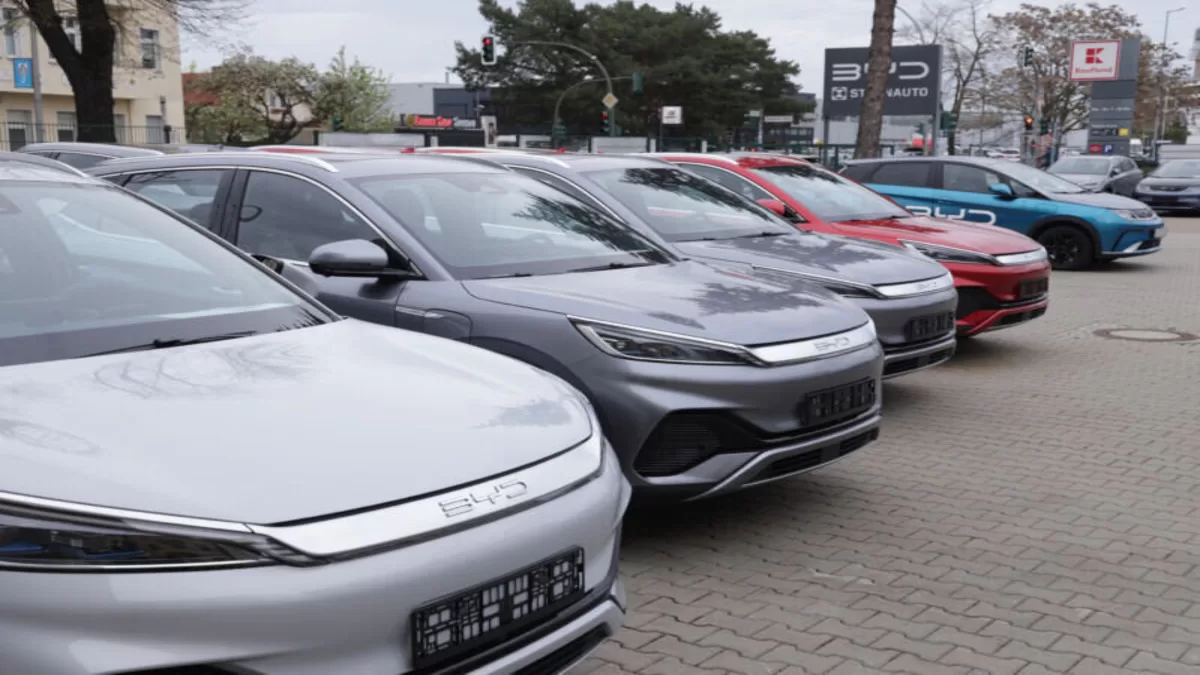A lineup of BYD electric cars showcased at a dealership in Berlin. [Ban Chinese electric vehicles now,” demands U.S. senator (Ars Technica)]
“Urgent Call to Action: Senator Pushes for Ban on Chinese Electric Vehicles”
Senator Sherrod Brown (D–Ohio), a prominent figure, has urged President Joe Biden to enforce a prohibition on electric vehicles originating from Chinese manufacturers. Brown perceives Chinese EVs as a profound threat to the US automotive sector, emphasizing that importing affordable Chinese EVs contradicts a pro-labor industrial strategy.
Brown’s communication to the president echoes mounting concerns regarding the influx of heavily subsidized Chinese EVs into established markets. Brands like BYD and MG have already made inroads into the European Union, prompting the EU to initiate an anti-subsidy inquiry last October to scrutinize potential unfair advantages provided by the Chinese government to its domestic brands.
The EU’s investigation is ongoing, yet recent findings indicate pervasive government subsidies for green technology firms in China. According to a study by the Kiel Institute, BYD, now outselling Tesla in EVs, received nearly $4 billion (3.7 billion euros) in direct assistance from the Chinese government in 2022.
In a related development, the EU has intensified scrutiny on Chinese EV imports, warning of possible retroactive tariffs commencing this summer.
While Chinese EV imports to the EU have surged by 14 percent since the inquiry began, their entry into the US market faces obstacles. Chinese battery-equipped EVs do not qualify for the IRS’s clean vehicle tax credit, and vehicles manufactured in China, such as the Lincoln Nautilus, Buick Envision, and Polestar 2, are subject to a 27.5 percent import tariff.
An Impending Crisis?
The presence of Chinese EVs in Mexico has raised concerns among American automakers. Ford CEO Jim Farley regards Chinese automakers, rather than traditional rivals like GM or Toyota, as the primary competition. Similarly, Elon Musk of Tesla predicts that without trade barriers, Chinese automakers could dominate the global automotive industry.
BYD, with its recently unveiled sub-$10,000 EV, the Seagull, is reportedly exploring manufacturing facilities in Mexico, potentially circumventing the 27.5 percent tariff for the US market.
However, congressional action could impede these plans. Joshua Hawley (R-Mo.) has proposed increasing tariffs on Chinese EVs, advocating for a base tariff hike from 2.5 percent to 100 percent, resulting in an overall 125 percent import tariff. He also proposes extending these rates to Chinese EVs assembled in Mexico.
Brown, echoing similar sentiments, emphasizes the potential detriment to the domestic manufacturing base from increased Chinese EV sales, affecting critical suppliers ranging from steel to semiconductor producers. He also underscores the risk posed by Chinese access to data collected by connected cars, emphasizing China’s restrictive policies on American-made electric vehicles near their government facilities.
In late February, the Commerce Department initiated an investigation into the security risks associated with Chinese-connected cars.
Brown’s proposal extends beyond tariffs; he advocates for a preemptive ban on Chinese EVs to safeguard the US EV market from potential obliteration. He urges the administration to explore all available options, including invoking Section 421 (China Safeguard) of the Trade Act of 1974, to address this pressing issue.
#EVIndustry #TradePolicy #AutomotiveSector #USChinaRelations #GreenTechnology
